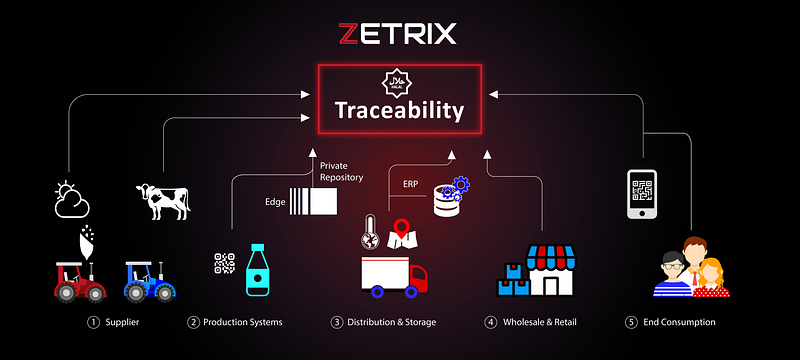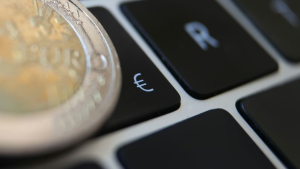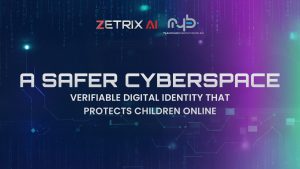Applying Blockchain to Halal Traceability

Halal traceability has been a key concern for consumers, businesses and regulators in the modern era, as it ensures all products meet the required halal standards throughout the entire supply chain. With blockchain’s transparency, security and decentralised nature, it’s able to provide an effective solution for improving halal traceability.
Here’s a few methods on how blockchain can enhance halal traceability:
End to End Traceability
Blockchain’s ability to create a transparent, fixed ledger is ideal for halal certification processes as every stage of the product’s journey, from production and processing to packaging and transportation, can be recorded on the blockchain, ensuring that each participating party in the supply chain follows the set halal standards. By making all actions visible to stakeholders, consumers can trust that a product is indeed halal-certified.
How can we ensure consumers have transparent and reliable access to verify the halal authenticity and supply chain history of products?
The family preparing a meal for a celebration and purchasing a halal-certified chicken at their local store. By scanning the QR code on the package, they could see the chicken’s entire journey: from the chicken being raised ethically on a compliant farm, slaughtered per halal standards with certifications, and transported in halal-only conditions. It’s a collective contribution from each entity along the supply chain.
Immutable Record of Halal Certification
Blockchain can ensure the integrity of halal certifications. Once a certification has been issued onto the blockchain, it cannot be altered or tampered with by any means. This helps prevent fraud, where false halal certifications can sometimes be presented to mislead consumers.
How can we use blockchain to provide permanent and verifiable halal certification data, enabling all supply chain participants to ensure authenticity?
When a halal certification agency issues a certificate, it is recorded on the blockchain. Once issued, the certification becomes permanent and tamper-proof. At every step in the supply chain, from the slaughterhouse to the retailer, participants can instantly verify the certificate’s authenticity. Consumers can also trust the product’s halal status, knowing the certification is secure and fraud-proof.
Verification of Ingredients and Processing Practices
Halal food must not contain forbidden ingredients or substances in Islam, such as pork or alcohol. Blockchain is able to trace all ingredients back to their source, verifying that they are halal. Additionally, it can track the production process to ensure that no cross-contamination occurs with non-halal items during manufacturing or packaging.
How can blockchain track each ingredient in processed food, alerting stakeholders if any component is non-halal to ensure the final product meets halal certification standards?
For processed food items, blockchain is able to track each ingredient back to its source, verifying its halal status and ensuring no cross-contamination during manufacturing or packaging. If any ingredient is non-halal, the system instantly flags it, alerting all parties and preventing the product from being falsely certified as halal.

Decentralisation and Trust Building
As blockchain operates in a decentralised manner, no single party controls the system. This helps build trust among all stakeholders, including consumers, manufacturers, suppliers, and certifying bodies. All participants in the supply chain have equal access to accurate and up-to-date information.
How can a blockchain-based platform decentralise halal certification data entry to prevent bias or corruption and enhance certification reliability?
Blockchain-based platforms can allow multiple certifying bodies to input halal certification data. With no single party controlling the system, decentralisation ensures transparency and prevents bias or corruption, building trust among consumers, manufacturers, suppliers, and certifying bodies.
Supply Chain Efficiency
Blockchain reduces paperwork and streamlines supply chain processes by providing real-time data sharing between suppliers, manufacturers, and certifying bodies. This efficiency can lower costs and reduce the time it takes to verify halal compliance.
How can blockchain automate the verification of suppliers’ halal certifications and flag discrepancies to save time for manufacturers and suppliers?
Instead of manually verifying halal certifications from multiple suppliers, blockchain can aid in automating the process, checking each supplier’s certification status in real-time and flagging any discrepancies. This streamlines operations, saves time, and reduces costs for manufacturers and suppliers.
Combating Fraud and Mislabelling
Mislabelling of halal products is a significant problem. Blockchain’s ability to authenticate data ensures that products labelled as halal truly meet the required standards. This reduces the risk of fraudulent labelling, providing assurance to both businesses and consumers.
How can blockchain help retailers ensure that products labelled as halal are genuinely certified, preventing false labelling and protecting business reputations?
A retailer can use blockchain to verify that products labelled “halal” are genuinely halal-certified. If a product is falsely labelled, blockchain flags the discrepancy, protecting businesses from reputational damage and ensuring consumer trust.
Blockchain significantly enhances the traceability of halal products by offering transparency, immutability, and real-time verification of certifications and processes. It ensures that halal integrity is maintained throughout the supply chain, building trust with consumers and improving overall efficiency in the halal food industry.





